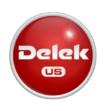“There is growing awareness among employers that addressing mental health problems makes good business sense, but the oil & gas sector may need to catch up.” Carolyn McVey Senior Account Manager for Lockton
May is Mental Health Awareness Month, and it brings to light the concern and awareness of mental health in the workplace. Mental Health Awareness Month began in the U.S. in 1949. This awareness was started by the Mental Health America (MHA) organization (then known as the National Association for Mental Health).
Safety of employees has been Delek’s top priority from day one, but are we doing enough in the oil and gas industry to address mental health? Isn’t mental health part of safety of employees? Mental health in any sense can be hush hush, private, even a sign of weakness in some opinions. Stress has returned to pre-pandemic levels, with more than 41% of millennials and 46% of Gen Zs saying they feel stressed all or most of the time reports According to Deloitte.
“The oil and gas industry may have failed to address mental health issues among staff in the past partially because it is a very male dominated industry, and men tend to find it more difficult to speak about their feelings and emotions,” says Eugene Farrell, Mental Health Lead at AXA.
Today, women make up approximately one-fifth of the total oil and gas workforce. Still a significantly low percentage, but the number is on the rise, significantly at Delek. Workers of all genders and identities in the oil and gas industry battle stresses to avoid mistakes that could lead to consequences of loss of life or hazardous environmental impact. Shouldn’t the importance of mental health become a top priority under the industry safety measures when employee mistakes could lead to this level of consequence? In one of our previous blogs, https://www.delekus.com/2022/03/08/refinery-worker-schedules-what-works-best/, we discussed how Delek utilizes “shift work.” Delek, like many manufacturing industries, must operate 24 hours per day, because the production process is much longer than eight hours and must be performed continuously.
Historically, dedicated day, evening, and graveyard shifts were used to perform these jobs. Rotating schedules were developed and are now more often used, because they are considered fairer to all employees. Everybody “on shift work” takes their turn at both the popular and unpopular shifts. Working in a fair environment is supportive of a positive mental health environment, but by no means diminishes the challenges of shift work. Delek also utilizes a wellness app, Calm, to encourage and support the mental health of our employees. Furthermore, Delek offers an Employee Assistance Program where our employees can speak to a counselor telephonically at no additional cost. Counselors can help address stress, anxiety, sleep disorders, and more. These are just three examples of ways we are encouraging a happy and healthy mind, but what more can we be doing?
According to Deloitte 25% of millennials and 22% of Gen Zs said they would like to work in the office “a little to a lot less often.” Working from home or a hybrid approach screams to a solution to increased happiness. Less time in traffic, a more comfortable environment, more time with family, and the list goes on. Excessive numbers of employees are leaving their current jobs to work for a company that allows them to work from home. For the oil and gas industry this just isn’t feasible. So how do we make workers happier at the Refinery and for all positions in the Oil and Gas Industry?
Research shows that employees want to see greater consideration for mental health in the workplace; in a 2019 study, 86% of respondents said that company culture should support mental health.
Step one is starting the conversation in our day to day. At Delek, we have Core Values of Safety, Integrity, Innovation and Excellence, Commitment, Growth Oriented, and Maximizing Value. Should we consider Mental Health and Happiness a Core Value, or at the very least have it fall under Safety? Maybe call it Wellness. Turnover rate for many companies is at an all time high. Employees don’t leave jobs where they are happy. They leave jobs for new ones where they believe they will be happier, whether it’s a better work-life balance, more pay, less stress, more room to grow, better leadership, etc. If Wellness was a part of our day-to-day Core Values and conversation, it would no longer be a taboo subject.
“There still remains a stigma where a good many people are embarrassed to access mental health care,” Marcus Osborne, SVP of Walmart Health (and Nava Advisor) emphasized. “HR leaders (and executives overall) have a huge role to play in reducing that stigma and reducing the friction to employees accessing mental and behavioral health services.”
Step two is to find the safe space. Delek has an ethics hotline for employees only, 1-800-867-9267, available 24 hrs a day, 7 days a week, plus an ethics website https://secure.ethicspoint.com/domain/media/en/gui/58434/index.html. Delek is committed to integrity in business dealings and relationships. Reports can be made anonymously and prohibits retaliation against anyone who reports what is believed in good faith to be a violation of the Code of Business Conduct and Ethics. Most companies have a similar program or a dedicated HR or Ethics Manager you can speak to for guidance and resources. Guidance counselors are another great resource Delek offers. In October of 2021, Delek provided an on-site licensed counselor from our Employee Assistance Program (EAP) partner, Health Advocate, to discuss the impact of Covid-19 and how it impacted health and wellness of employees. Currently, Health Advocate provides an EAP with many benefits:
- Six free sessions per incident for you and your dependents
- Get help with Anxiety, Stress, Relationship, Sleeping Better and much, much more
- Don’t suffer in silence!
- Call 866-799-2691
- Visit healthadvocate.com
- Email answers@healthadvocate.com
Delek’s HR also shares a list of resources related to grief and loss. Providing the safe space and resources for employees presents the opportunity to “talk” about our mental health and circumstances and “engage” the right professional to work towards a “solution” for a happier and healthier wellness.
“If you don’t make time for your wellness, you’ll be forced to make time for your illness.” -Anonymous.
Step three is to break through your own barriers and take ownership of your Wellness. The person that should care the most about your mental health, is you! Mental health must start with the individual. It’s no surprise that physical activity, healthy nutrition, and proper sleep leads to a healthier body and mind. Listen to what your body and mind are telling you. If you are trying to meet a stressful deadline, work smarter. Take the time to give yourself a breather. Make a list, have a plan. Check off the things you have accomplished and prioritize what still needs to be done. Allow yourself to have a work-life balance. If you feel your current company and position don’t allow that, try speaking with your manager about ideas of how you can manage your day better. Speak up that you need guidance about your workload and the importance you put on meeting all expectations, but be honest that you are struggling to remain at your best under these conditions. Become a voice for mental health and make it a part of your workday conversations and be willing to speak out and report violations you see that go against your company’s ethics policies.
Your mental wellness, even in the workplace, is ultimately up to you, so take care of your mind, it’s the only one you have.
References:
https://global.lockton.com/gb/en/news-insights/tackling-mental-health-in-the-oil-and-gas-sector
https://www.delekus.com/2022/03/08/refinery-worker-schedules-what-works-best/
https://hbr.org/2019/10/research-people-want-their-employers-to-talk-about-mental-health
https://www.mindsharepartners.org/mentalhealthatworkreport
https://www.navabenefits.com/resources/three-signs-that-your-workplace-culture-values-mental-health
https://secure.ethicspoint.com/domain/media/en/gui/58434/index.html (Delek Employees Only)

